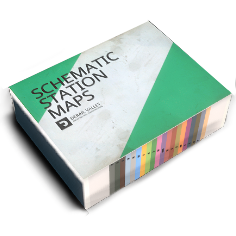Blower & Damper/ja: Difference between revisions
Appearance
Updating to match new version of source page |
No edit summary |
||
| (9 intermediate revisions by 2 users not shown) | |||
| Line 1: | Line 1: | ||
<languages /> | <languages /> | ||
{{pll|Steam Overview|蒸気機関}}では、{{pll|Fuel Storage|燃料}}が燃える強さ、即ち{{pll|Firebox|火室}}の温度は、取り入れる空気の流れに大きく依存します。より具体的には、空気中の酸素量に依存することを意味します。 | |||
火室に空気を供給する主な方法は、{{pll|Regulator|加減弁}}と{{pll|Cutoff|カットオフ}}を全開にして、車両を動かすことです。<br/>{{pll|Cylinder Cocks|シリンダー}}から煙突を通って大気中に蒸気が排出されると、弁装置のサイクルごとに火室内に負圧が生じ、新鮮な空気が吸い込まれます。 | |||
ただし、全開の状態での加速が常に望ましい訳ではありません。そのため、空気の流れを調整するための制御装置(ブロワーとダンパー)が用意されています。 | |||
ブロワーは通常、弁で操作します。弁を開くと、{{pll|Boiler|ボイラー}}から煙突へ蒸気が放出されます。これにより火室内に負圧が生じ、新鮮な空気が吸い込まれます。<br/>しかし、この空気の流れは加速時の空気の流れに比べて大幅に劣るため、ブロワーは停車中の機関車で使用した場合のみ、{{pll|Driving Efficiency|効率的}}です。 | |||
< | ダンパーは通常、レバーで操作します。閉じる(押し下げる)と空気の流れが遮断され、車両が加速している場合でも火炎温度が大幅に低下します。<br/>これは、不要な蒸気の発生を意図的に抑制するために使用されますが、より効率的な代替手段として、タイミング良く{{pll|Injector|注水}}を行うという方法もあります。 | ||
[[Category:Fire Management|3]] | [[Category:Fire Management|3]] | ||
Latest revision as of 23:41, 30 April 2025
蒸気機関では、燃料が燃える強さ、即ち火室の温度は、取り入れる空気の流れに大きく依存します。より具体的には、空気中の酸素量に依存することを意味します。
火室に空気を供給する主な方法は、加減弁とカットオフを全開にして、車両を動かすことです。
シリンダーから煙突を通って大気中に蒸気が排出されると、弁装置のサイクルごとに火室内に負圧が生じ、新鮮な空気が吸い込まれます。
ただし、全開の状態での加速が常に望ましい訳ではありません。そのため、空気の流れを調整するための制御装置(ブロワーとダンパー)が用意されています。
ブロワーは通常、弁で操作します。弁を開くと、ボイラーから煙突へ蒸気が放出されます。これにより火室内に負圧が生じ、新鮮な空気が吸い込まれます。
しかし、この空気の流れは加速時の空気の流れに比べて大幅に劣るため、ブロワーは停車中の機関車で使用した場合のみ、効率的です。
ダンパーは通常、レバーで操作します。閉じる(押し下げる)と空気の流れが遮断され、車両が加速している場合でも火炎温度が大幅に低下します。
これは、不要な蒸気の発生を意図的に抑制するために使用されますが、より効率的な代替手段として、タイミング良く注水を行うという方法もあります。
